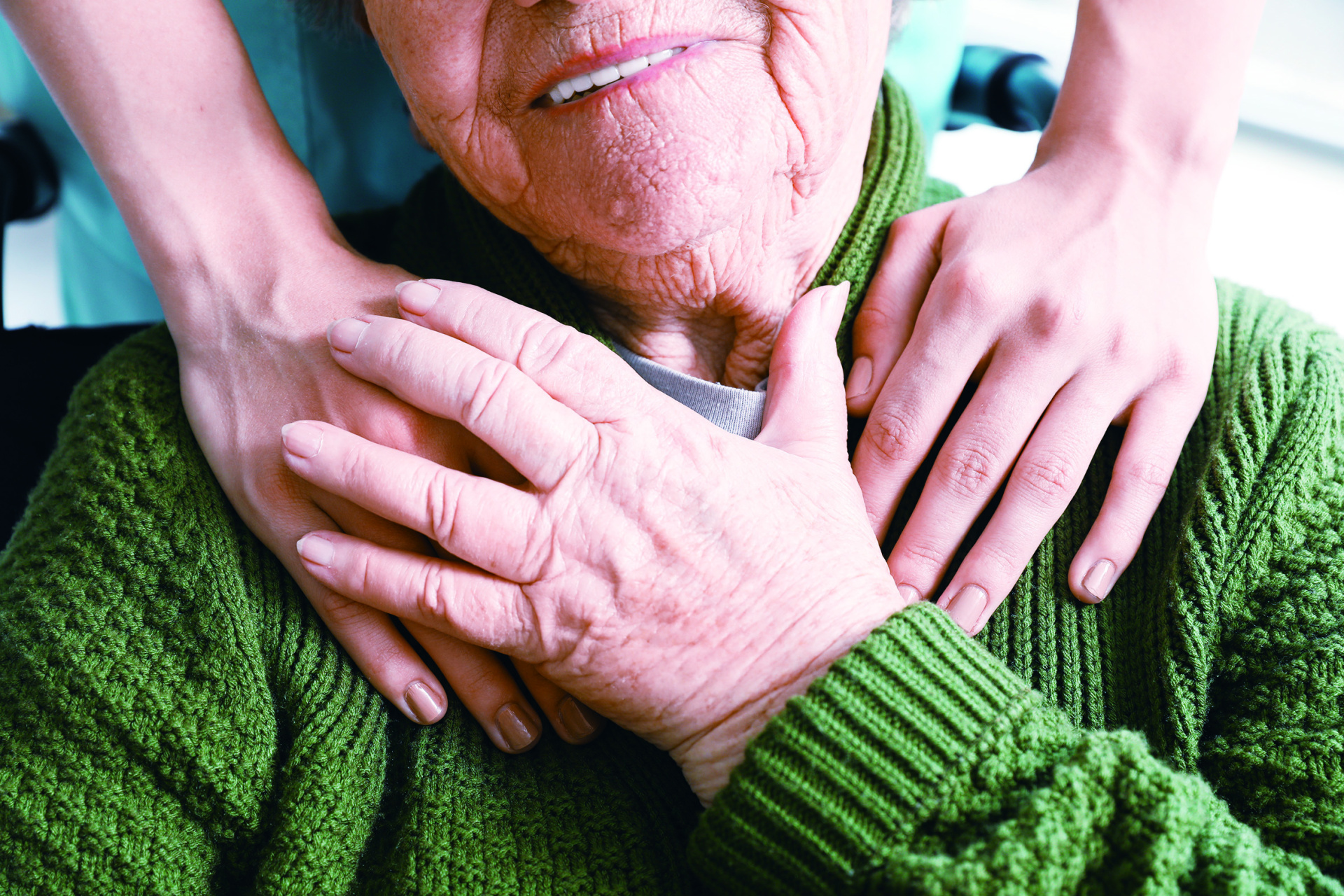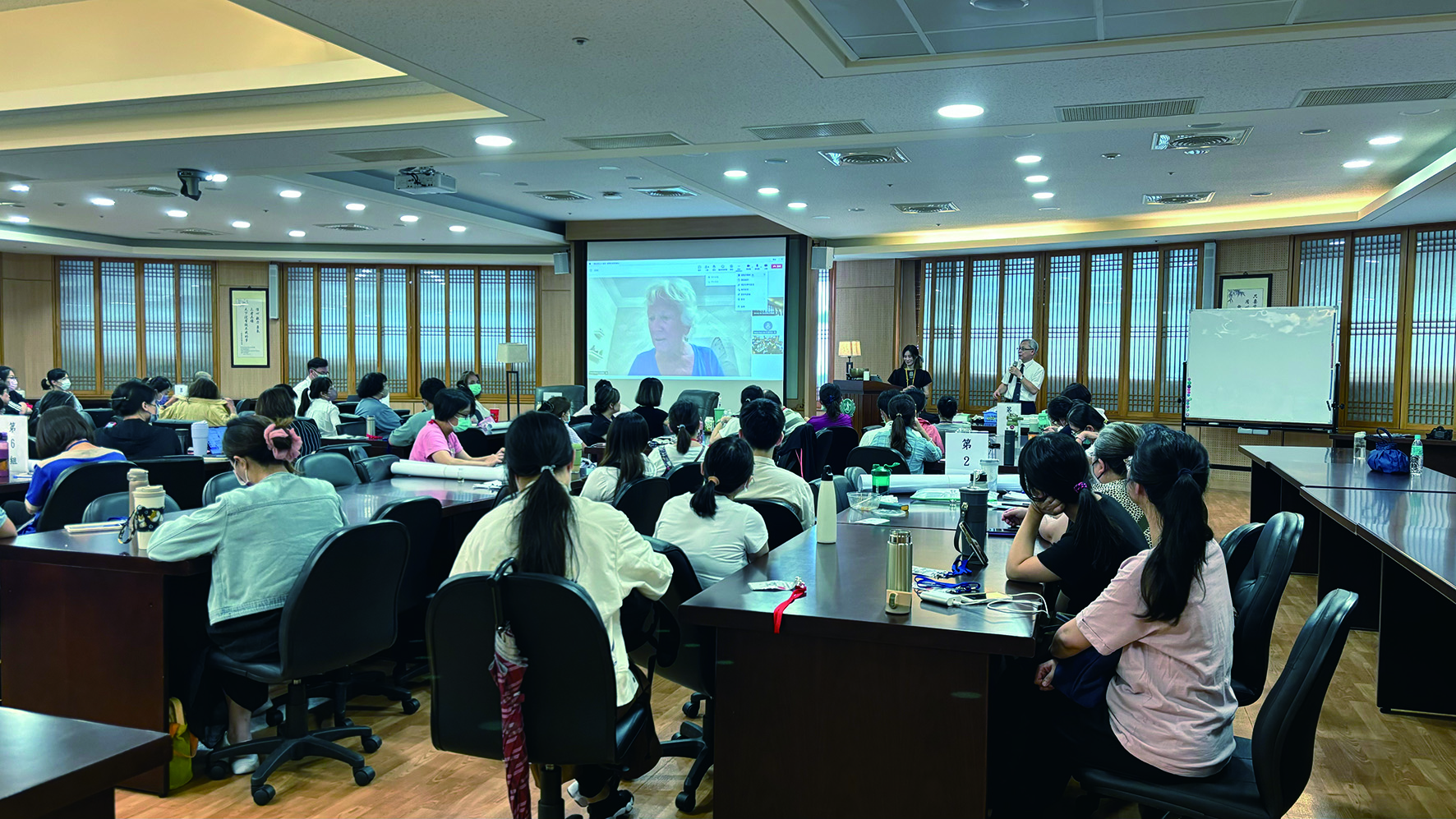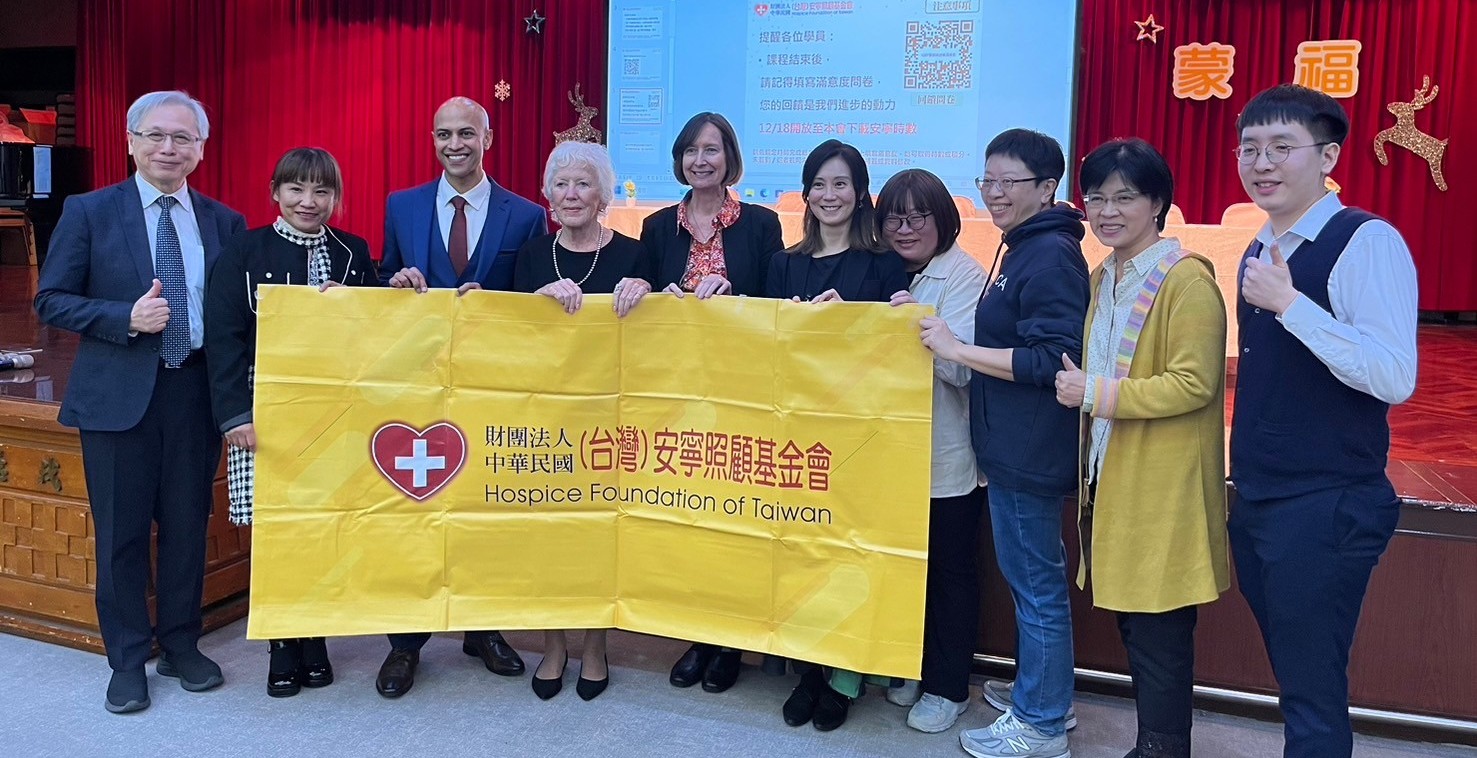In 2003, Joyce Simard, a U.S. social worker with over 40 years of experience in long-term care, developed the Namaste Care model to provide better care for patients with advanced dementia. This approach emphasizes gentle touch, individualized attention, and meaningful activities to improve patients' quality of life while promoting their psychological and emotional well-being.
 With Taiwan on the brink of becoming a super-aged society, the development of hospice and palliative care is entering a new phase. By 2020, the Namaste Care model had spread to 11 countries, and its influence reached Taiwan in 2024. The increasing number of frail elderly and dementia patients presents new challenges for palliative care professionals. According to the Global Quality of Death and Dying Index 2021, terminally ill patients prioritize pain management and alleviation of discomfort in their final days, followed by a quiet and safe environment. However, for frail and dementia patients, environmental comfort and the respect and acceptance of caregivers are often more important than symptom management. The essence of Namaste Care lies in honoring those under care, reducing their fear of death through companionship, and helping them rediscover peace, joy, and a sense of being loved.
With Taiwan on the brink of becoming a super-aged society, the development of hospice and palliative care is entering a new phase. By 2020, the Namaste Care model had spread to 11 countries, and its influence reached Taiwan in 2024. The increasing number of frail elderly and dementia patients presents new challenges for palliative care professionals. According to the Global Quality of Death and Dying Index 2021, terminally ill patients prioritize pain management and alleviation of discomfort in their final days, followed by a quiet and safe environment. However, for frail and dementia patients, environmental comfort and the respect and acceptance of caregivers are often more important than symptom management. The essence of Namaste Care lies in honoring those under care, reducing their fear of death through companionship, and helping them rediscover peace, joy, and a sense of being loved.
In response, under the recommendation of the International Namaste Care Association, Dr. Ying-Wei Wang, former Director-General of Taiwan's Health Promotion Administration and current Board Member of the Hospice Foundation of Taiwan and Hualien Tzu Chi Hospital Palliative Care Center, reached out to the Namaste Care representative for Asia—the Hong Kong Chinese Christian Churches Union Kwong Yum Care Home. Wang invited instructors from Kwong Yum Care Home to lead hands-on workshops in Taiwan, leveraging the center’s experience in establishing the Spiritual End of Life Care Center two years prior. These workshops aimed to help Taiwan learn and integrate Namaste Care practices, with the goal of developing a uniquely Taiwanese version of the Namaste Care model.
 In early August, Vennus Yuen-Wai Ho, Superintendent of the Kwong Yum Care Home, along with On-Chun Lau, Social Service Officer, and Hau-Yi Yuen, Manager of the Spiritual End of Life Care Center, conducted two online educational training sessions. Later, in mid-August, the three instructors visited Taiwan, holding hands-on workshops in Taipei, Taichung, and Hualien. These workshops invited palliative care professionals interested in Namaste Care to participate. Upon completing the foundational training for beginners, participants were awarded an international Namaste Care certificate.
In early August, Vennus Yuen-Wai Ho, Superintendent of the Kwong Yum Care Home, along with On-Chun Lau, Social Service Officer, and Hau-Yi Yuen, Manager of the Spiritual End of Life Care Center, conducted two online educational training sessions. Later, in mid-August, the three instructors visited Taiwan, holding hands-on workshops in Taipei, Taichung, and Hualien. These workshops invited palliative care professionals interested in Namaste Care to participate. Upon completing the foundational training for beginners, participants were awarded an international Namaste Care certificate.
Elderly individuals in advanced stages of illness face challenges beyond physical decline and multiple chronic conditions. Their cognition, sensory perception, functional abilities, social interactions, and emotions are all affected. As their ability to manage daily tasks and solve problems diminishes, and brain function deteriorates, they often experience anxiety, loss of motivation, and heightened sensitivity. The Namaste Care model provides nine core principles: dignity, family, life story, meaningfulness, comfort, ease, nourishment, the five senses, and presence. "Person-centered Namaste Care values the elderly's individual life, background, interests, and abilities, responding appropriately to their needs and tailoring a personalized care plan," explains Ying-Wei Wang. By creating a calm and comfortable environment and offering sensory stimulation—such as touch massage, soothing or rhythmic music, and aromatherapy—caregivers can alleviate the anxiety that many elderly patients experience.
Furthermore, Namaste Care encourages interdisciplinary teams to conduct comprehensive assessments and collaborate with the elderly and their family to discuss an Advance Care Plan (ACP). This process ensures the elderly's wishes are heard and respected without judgment or imposing expectations, allowing them to express themselves authentically. If the elderly choose not to participate in the activity, their decision should be honored. Various forms of spiritual support help maintain their confidence and hope during the later stages of life. Taiwan has long embraced diverse palliative therapies, including essential oil massages, aromatherapy, and music therapy. This indicates that the foundational elements of Namaste Care are already present in Taiwan, and the next step is to integrate and adapt these practices to suit the local cultural context.
 In early December, coinciding with a seminar in Hong Kong featuring Namaste Care founder Joyce Simard, UK’s Rishi Jawaheer, and Australia’s Sara Karacsony, Taiwan invited them, along with Hong Kong’s Kwong Yum Care Home Superintendent Vennus Yuen-Wai Ho to visit Taiwan. During their visit, the experts participated in an international Namaste Care conference, sharing experiences of implementing Namaste Care across different countries. The conference also showcased the early efforts following the August workshops, with Hualien Tzu Chi Hospital and Taitung St. Mary’s Hospital beginning to implement Namaste Care. The dedication of professionals striving to honor and meet the needs of their elderly clients was remarkable, vividly demonstrating the core spirit of Namaste Care.
In early December, coinciding with a seminar in Hong Kong featuring Namaste Care founder Joyce Simard, UK’s Rishi Jawaheer, and Australia’s Sara Karacsony, Taiwan invited them, along with Hong Kong’s Kwong Yum Care Home Superintendent Vennus Yuen-Wai Ho to visit Taiwan. During their visit, the experts participated in an international Namaste Care conference, sharing experiences of implementing Namaste Care across different countries. The conference also showcased the early efforts following the August workshops, with Hualien Tzu Chi Hospital and Taitung St. Mary’s Hospital beginning to implement Namaste Care. The dedication of professionals striving to honor and meet the needs of their elderly clients was remarkable, vividly demonstrating the core spirit of Namaste Care.
Namaste Care is not just about physical care but also about soothing the spirit. Through multi-sensory stimulation and emotional support, Namaste Care helps the elderly in their final stages of life feel respected, loved, and accepted. This holistic approach requires caregivers not only to possess professional skills but also to build deep emotional and spiritual connections with those they care for, providing comprehensive support. The hope is that this heartfelt movement, born out of compassion, will grow into a powerful force that takes root and flourishes throughout Taiwan in the years to come.
